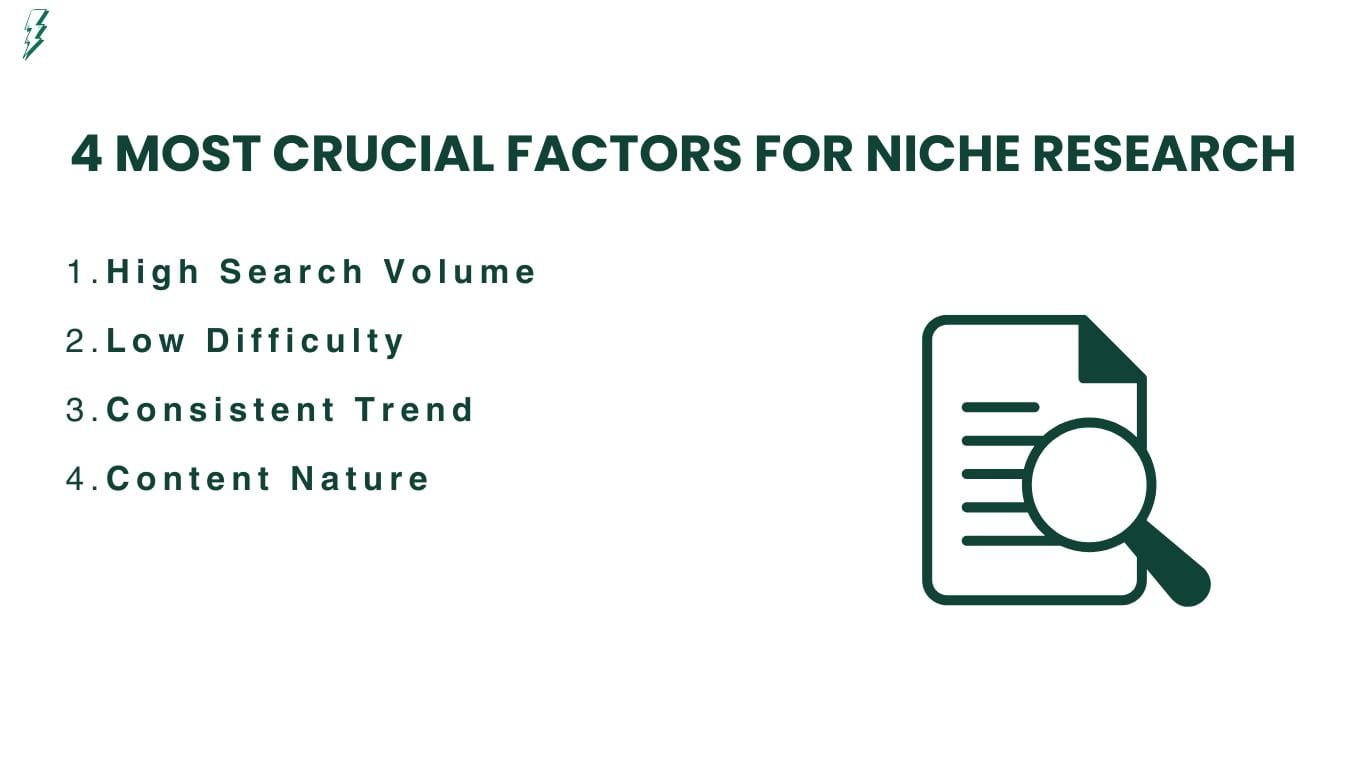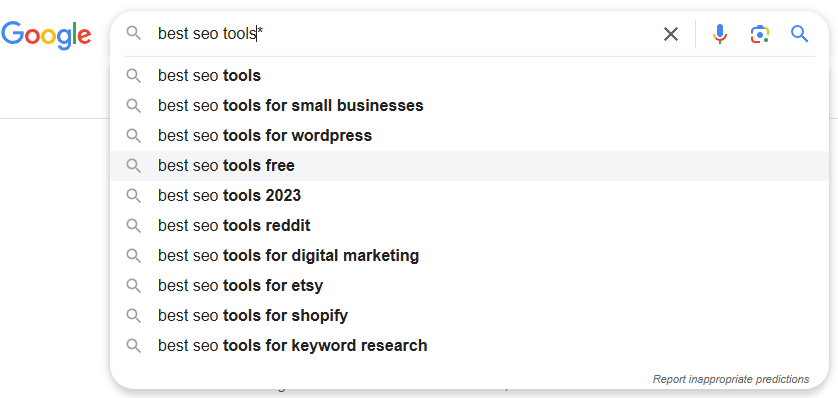How to Identify and Target Profitable Niches
In today’s dynamic landscape, carving out your unique space is essential for standing out. Discovering profitable niches can be your ticket to business success.
When you dive into niche research, you uncover spaces that resonate with specific audiences, allowing you to tailor niche marketing strategies effectively.
Whether you’re diving into niche research for affiliate marketing or exploring niche research for blogging, pinpointing your audience is crucial.
Utilize niche research tools to streamline your process and find untapped opportunities that align with current trends and demands.
Embrace the power of finding a niche and transform it into a sustainable venture, paving the way for lasting impact.
What Is Niche Research?
Niche research is the process of identifying and analyzing a specific, focused segment within a larger market. It involves pinpointing a particular group of consumers with unique needs, preferences, and interests.
By understanding this niche audience, businesses can tailor their products, services, and marketing strategies to resonate with them more effectively.

What is the Niche Keyword?
Niche keywords are highly specific, long-tail keywords that target a narrow industry or topic. Unlike broad, general keywords, niche keywords focus on a particular segment of a market.
They are often longer phrases composed of three or more words, making them more precise and relevant to a specific audience.
While niche keywords may have lower search volume compared to general keywords. They attract a more targeted and engaged audience, leading to higher conversion rates.
Difference between Niche research and Keyword Research
Niche research and keyword research are two interconnected concepts in digital marketing. They play crucial roles in understanding your target audience and optimizing your content for search engines.
Niche research involves identifying a specific market segment with unique needs and interests. It helps you define your target audience and tailor your content to their preferences.
Keyword research is the process of identifying relevant keywords that people use to search for information online. These keywords are then used to optimize your website’s content, titles, and meta descriptions.

Understanding the Importance of Niche Research
When it comes to building a successful business, niche research provides a solid foundation. Understanding your market’s specific needs allows you to tailor niche marketing strategies that speak directly to your audience.
As Seth Godin brilliantly put it, “Don’t find customers for your products, find products for your customers.”
This mindset emphasizes the value of focusing on niche markets that are underserved or unexplored.
Affiliate Niche
Exploring niche research for affiliate marketing offers opportunities to connect with highly targeted audiences.
By identifying what appeals to your specific demographic, you can create compelling content that fosters engagement and drives conversions.
Employing niche research tools can streamline this process, giving you data-driven insights into consumer behavior and trends, enhancing your strategy.
Blog Niche
For blogging, niche research ensures that you’re not lost in a sea of generic content. By leveraging niche research for blogging, you can establish a voice and identity that stands out.
This personalized approach not only attracts but retains readers by offering value that speaks directly to their interests.
Through diligent niche research, you build a community that is loyal and interactive, boosting your influence and growth.
How to Identify Your Profitable Niches

Identifying your target audience is a crucial step in effective niche research. The process begins by analyzing the characteristics of those most likely to engage with your product or content.
This involves gathering data through surveys, social media insights, and customer feedback.
By understanding demographics, interests, and behaviors, you can refine your approach. Ensuring that your niche marketing strategies resonate with your intended audience.
What most people don’t see about identifying a target audience is the hidden dynamics of consumer psychology that make all the difference. Beyond surface-level demographics, delving into the reasons behind customer choices offers valuable insights.
This behind-the-scenes detail can guide your efforts to position yourself uniquely within your chosen niche, generating more significant impact and connection.
Whether you’re utilizing niche research for affiliate marketing or blogging. Understanding these elements helps you craft content and offers that directly address your audience’s needs and desires. Ensuring sustained engagement and growth.
Through careful analysis and strategy, you can create meaningful interactions that reinforce loyalty and trust.

Tools for Effective Niche Research

Effective niche research hinges on the utilization of robust tools that can offer deep insights and streamline the process.
Platforms like Google Trends, SEMrush, and BuzzSumo help you monitor market trends, keyword popularity, and competitive landscapes.
These niche research tools enable you to identify emerging interests within your niche. Aiding in the development of focused niche marketing strategies. They are invaluable assets in finding a niche that suits your business objectives.
Insights from Neil Patel suggest leveraging data-driven tools to uncover micro-niches that might otherwise be overlooked. His view underscores the importance of using comprehensive analytics to understand market demands and consumer behaviors.
By focusing on niche research for affiliate marketing or blogging, the use of expert-recommended tools enhances your ability to create targeted content and offers that resonate with your audience.
Beyond basic analytics, tools like AnswerThePublic and Ahrefs offer keyword insights that are crucial for effective content creation and audience engagement.
These SEO tools can show you what potential customers are curious about, allowing you to tailor your niche research for blogging and affiliate marketing accordingly.
Analyzing Market Trends and Demand

Analyzing market trends is a vital part of niche research. By keeping an eye on shifts in consumer preferences, you become better equipped to anticipate changes and adjust your strategies accordingly.
Tools like Google Trends and social media insights help you track what’s gaining traction in your industry, offering timely information to guide your niche marketing strategies.
While many believe that established trends are the safest bets, there’s a strong case for exploring emerging markets. These often-overlooked opportunities can provide a competitive edge by allowing you to step into spaces with less saturation.
By identifying and capitalizing on these potential niches, you enhance your chances of securing a unique position in the market.
Understanding demand involves more than just observing trends. It requires looking at purchasing behaviors and customer feedback to gauge interest levels.
Whether you’re engaged in niche research for affiliate marketing or blogging, analyzing demand helps you align your offerings with what people genuinely want.
This approach facilitates crafting content and products that meet needs effectively.
Accurate demand assessment is where niche research tools prove invaluable. By using data from reliable sources, you can make informed predictions about future market movements.
This foresight allows you to develop content and strategies that are not just reactive, but proactive, setting you up for long-term success.
A Beginner’s Guide For Identifying the Right Niche

What Are The Important Factors To Consider When Starting Niche Research?
If you’re embarking on your online business journey and are unsure about the optimal niche, I’m here to assist you.
When selecting a niche, consider these essential factors:
Search Volume: Ensure there’s maximum online demand for your chosen topic.
Difficulty: Prioritize niches with lower competition to increase your chances of ranking higher in search engine results.
Consistent Trend: Select a niche with sustained interest over time.
Content Nature: Choose a niche that aligns with your interests and expertise, making content creation more engaging.
As a beginner, focusing on a micro-niche can be advantageous. This specialized approach allows you to grasp SEO principles more effectively and potentially start generating income sooner.
By concentrating on a specific subtopic, you can build a strong online presence and attract a dedicated audience.
Also Check: Best Practices for Effective Content Marketing
Micro Niche vs Macro Niche?
A macro niche is a broad category or topic, like “health and fitness” or “technology.” It encompasses a wide range of subtopics and has a large audience. In contrast, a micro niche is a highly specific subtopic within a macro niche.
For example, “vegan bodybuilding” or “iPhone photography tips” are micro niches within the broader categories of health and fitness and technology, respectively. Micro niches have smaller audiences but often have a more dedicated and engaged following.

What Are The Most Suitable Niches For Beginners To Start Online Business?
While it is advisable for beginners to focus on their areas of expertise, incorporating personal insights and real-world examples can significantly enhance content quality and uniqueness.
This approach aligns with Google’s preference for original, informative, and reader-centric content, which can positively impact search engine rankings.
- Hobbies and Crafts: Focus on a specific craft like crochet for beginners, DIY home decor, or upcycling furniture.
- Health and Wellness: Target a particular audience like yoga for seniors, plant-based diets, or mindfulness techniques for busy professionals.
- Parenting: Choose a specific age group or parenting style, such as toddler discipline, homeschooling, or eco-friendly parenting.
- Technology: Specialize in a particular device or software, like iPhone photography tips, beginner’s guide to coding, or productivity apps for students.
- Pets: Focus on a specific pet breed or care topic, such as cat behavior, dog training for puppies, or exotic pet care.
- Food and Cooking: Choose a specific cuisine, dietary restriction, or cooking technique, such as gluten-free baking, one-pot meals, or vegan meal prep.
- Travel: Target a specific destination or travel style, like budget travel in Europe, family-friendly vacations, or solo female travel.
By exploring the suggested micro-niche ideas and conducting in-depth research, you can identify highly relevant keywords that will attract a targeted audience and contribute to your online success.
How To Find The Niche Related Keywords For Content Creation?
To effectively optimize your content, it’s crucial to identify relevant keywords beyond your primary niche keyword. Google’s autocomplete feature offers a simple yet powerful method to uncover related keywords.
By typing your niche keyword into the Google search bar followed by an asterisk (*), you’ll be presented with a dropdown list of potential keyword suggestions.

Alternatively, you can leverage advanced SEO tools like Semrush, Ahrefs, or Moz to conduct a comprehensive competitor analysis.
By inputting a competitor’s domain adress into these tools by using domain analysis feature, you can gain valuable insights into the keywords that are driving organic traffic to their website.
This information can help you identify high-performing keywords that align with your niche and target audience.
Final Words
Mastering niche research is the cornerstone of building a successful online business. By understanding your target audience, conducting thorough market analysis, and leveraging effective tools, you can identify profitable niches that align with your passions and expertise. Remember, a well-defined niche not only helps you stand out in a crowded marketplace but also enables you to create highly targeted content that resonates with your audience.

